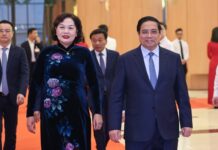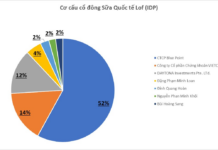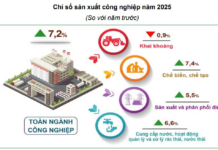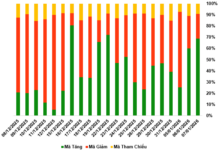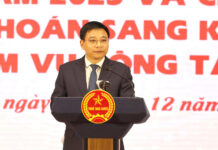Civil servants entitled to salaries from “other legitimate sources of income”
The draft Law on Civil Servants (amended) is currently undergoing consultation before being appraised and submitted to the National Assembly at the upcoming session, featuring several new points compared to the 2010 Law on Civil Servants (amended and supplemented in 2019).
The current Law stipulates that civil servants are Vietnamese citizens who are recruited based on job positions and work at public service delivery units under an employment contract, receiving salaries from the unit’s salary fund as regulated by law.

In addition to their salaries, civil servants will have “other legitimate sources of income”. Illustrative image
Regarding this issue, the Ministry of Home Affairs emphasized that the amended draft inherits the current regulations while adding that civil servants are entitled to salaries from “other legitimate sources of income” to align with the autonomous nature of certain types of public service units.
Another notable point is that while the current Law stipulates that civil servants must “dedicate themselves to serving the people”, the amended draft emphasizes that civil servants must demonstrate a respectful, dedicated, civil, and polite attitude when serving the people; refrain from causing inconvenience or harassment; and ensure equal access to services for all citizens, especially in essential public services.
Furthermore, the amended Law on Civil Servants also underscores the spirit of proactiveness, creativity, and willingness to take responsibility among civil servants, particularly in tasks related to innovation, research, and technology transfer.
In terms of civil servant management, this amendment aims to regulate that civil servants will be managed based on job positions linked to the outcomes of task performance, output products, and contributions to serving the people and society.
According to the Ministry of Home Affairs, this amendment ensures alignment with the management of civil servants based on job positions, linking their output products and contributions to society. It also removes the stipulation of professional titles as a basis for civil servant recruitment.
The current Law clearly guarantees the autonomy and emphasizes the responsibility of the head of a public service delivery unit.
In this amendment, the drafting agency aims to implement the principle of decentralization and delegation of authority corresponding to the level of autonomy of the public service delivery unit and the responsibility of the managing agency. It also ensures the head of the public service delivery unit has comprehensive autonomy over human resources, along with corresponding accountability.
Salary equivalent to or higher than the regional minimum wage
Another novelty linked to the digital transformation agenda is the draft amendment’s orientation towards implementing interconnected data on civil servant management, unified within each sector and field nationwide. This policy is associated with digital transformation based on a shared data foundation to serve human resource management, quality control, and development.
Additionally, the Ministry of Home Affairs proposes removing the regulation on professional standards as civil servants will be managed based on job positions. Accordingly, the standards and requirements for civil servant positions will be specified in the job position descriptions.
Regarding the employment contract between civil servants or those recruited, the amended draft law, inheriting the current regulations, has supplemented “other contents” in the contract as a basis for expanding the rights and obligations of civil servants.
Notably, Article 6 of the draft law clearly states the salary and income policy for civil servants.
Specifically, the draft states that the State has a mechanism to ensure salaries equivalent to or higher than the highest regional minimum wage in the business sector for civil servants working in units providing essential public services.
Concurrently, public service delivery units are responsible for developing internal spending regulations as a basis for paying additional income and other incomes to civil servants. This aims to encourage improved public service quality, ensuring alignment with industry characteristics and autonomy as regulated by law.
“Revolutionizing Civil Servant Assessments: Introducing the KPI-Driven Approach for 2026 and Beyond”
Let me know if you would like me to tweak it or provide additional suggestions!
The Ministry of Home Affairs is expediting the development and submission to the Government of a Decree on evaluating and ranking the quality of civil servants. This includes a proposal to monitor and assess civil servants’ performance using Key Performance Indicators (KPIs), with plans to implement this from January 1, 2026.
Is Voluntary Resignation with Benefits under Decree 178 Applicable to Staff in Budgeted Units?
The Ministry of Home Affairs has issued guidance on a pertinent issue: whether leaders and managers in departments and units who have not fully utilized their allocated staffing quotas but currently have a higher number of leaders than stipulated in regulations can be considered for retirement with benefits as per Decree 178.
The City of Ho Chi Minh: A New Era of Governance
“With the new two-tier local government structure in place, Ho Chi Minh City has efficiently organized and streamlined its operations. Within a month, the city has successfully appointed and assigned a competent team of officials and civil servants to their respective positions across various departments and units. This marks a significant step forward in the city’s administrative reform, with the establishment of the Public Administration Service Centers at the commune level, aiming to enhance service delivery and improve public accessibility.”









